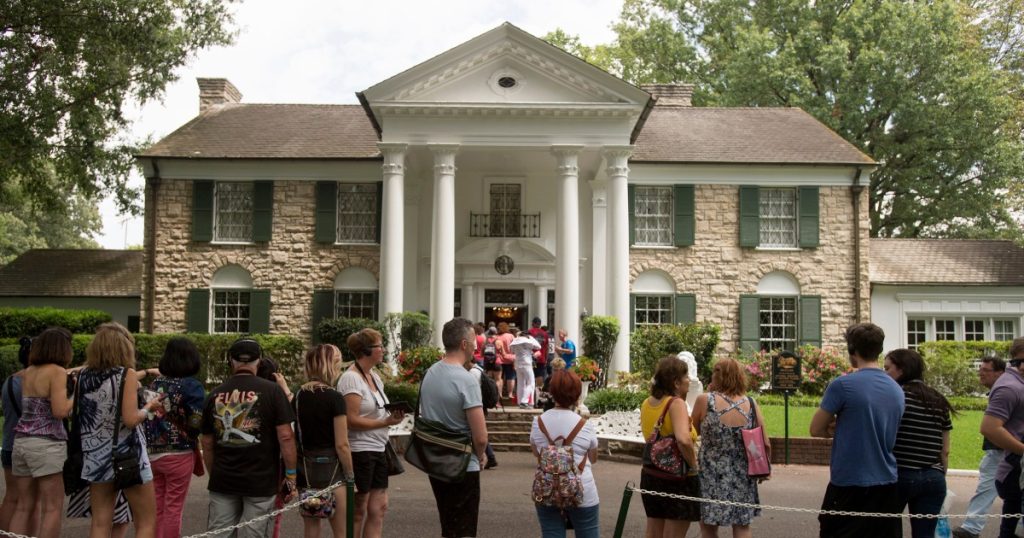The battle over Graceland, the iconic home of Elvis Presley, has taken an unexpected turn as a company called Naussany Investments & Private Lending claims to have rights to the property. The company asserted its intention to hold a foreclosure sale related to a $3.8 million loan made to Lisa Marie Presley, daughter of Elvis Presley. However, Lisa Marie’s daughter, Riley Keough, filed a claim alleging that the company had submitted fraudulent documents with forged signatures claiming that Graceland was put up as collateral for the loan. Despite the company’s attempts, a judge in Memphis, Tennessee, has postponed the foreclosure sale and expressed confidence that Keough will succeed in proving the alleged fraud.
The identity of the individuals behind Naussany Investments & Private Lending remains shrouded in mystery. Public records searches have turned up no information on any person with the last name Naussany or any company with similar initials. The only available information regarding the company comes from court filings in the Graceland case, offering little clarity on its origins or leadership. Keough’s claim indicated that she received emails from someone named Kurt Naussany seeking to collect the $3.8 million loan and threatening to sell Graceland. Further correspondence revealed a dissociation of Kurt Naussany from the company in 2015 and suggested contacting Gregory E. Naussany, who was allegedly involved in handling loans with Lisa Marie Presley.
Despite the response from Gregory E. Naussany denying the allegations of fraud and expressing readiness to proceed with the foreclosure sale, no direct contact with him has been successful. Subsequent requests for more information about him and the company, as well as an explanation for the lack of publicly available information, have yielded no additional details. The situation highlights the complexity and ambiguity surrounding the legal battle for Graceland, with questions remaining about the legitimacy and intentions of Naussany Investments & Private Lending.
Property-rights disputes involving allegations of fraud and obscure entities are not uncommon, particularly in cases where the primary individuals involved have passed away. In the context of the high-profile nature of Graceland and its significance as a cultural landmark, the legal battle over ownership of the property has garnered widespread attention. While the case has attracted media scrutiny, it is noted that similar disputes may occur without receiving the same level of public awareness. The outcome of the conflict over Graceland will have significant implications, not only for Elvis Presley’s family but also for the Memphis community that values the historic estate.
The unresolved nature of the situation surrounding Graceland and Naussany Investments & Private Lending raises concerns about the legitimacy and credibility of the company’s claims. The lack of transparency regarding the company’s leadership and operations adds to the uncertainty surrounding the foreclosure proceeding. Despite assertions from Gregory E. Naussany that the company will continue with the sale, the ongoing delay and legal challenges suggest that the matter is far from resolved. As the legal battle unfolds in court, the true motivations and intentions behind the claim to Graceland remain unclear, underscoring the complex nature of property disputes and the challenges they present in establishing ownership rights.
While the spotlight on the Graceland case has brought attention to the potential loss of the historic property, it also serves as a reminder of the broader issue of property rights and inheritance disputes. The significance of Graceland as a national treasure adds an emotional dimension to the legal conflict, prompting public interest and concern. The involvement of high-profile figures like Elvis Presley’s family members further complicates the situation, highlighting the complexities of managing legacies and inheritances. As the legal proceedings continue to unfold, the resolution of the Graceland dispute will serve as a notable case study in property law and inheritance rights, shedding light on the challenges faced in protecting cultural landmarks and family legacies.


